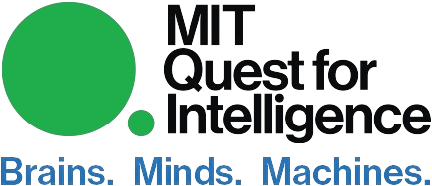The Quest seeks an Engineering Lead for the Systems Engineering Team, to drive the creation of innovative computational tools used to advance the understanding of intelligence.
About MIT’s Quest for Intelligence
MIT’s Quest for Intelligence aims to understand intelligence by tightly coupling scientific enquiry and rigorous engineering to address real-world problems that are beyond current machine capabilities but within the ability of natural intelligence. To achieve this vision, the study of natural intelligence and efforts to build intelligent systems must be treated as two interlocked aspects of the same grand challenge, with neuroscientists and cognitive scientists working alongside computer scientists and software engineers.
To understand intelligence, the Quest fosters and funds research Missions. Each Mission brings together a team of scientists and engineers to pose and answer foundational questions of natural intelligence where current AI falls short, to build engineered systems as mechanisms to test scientific hypotheses that advance these studies, and to execute tests of those systems to ensure that scientific progress is iteratively guided by natural intelligence results and real-world AI engineering challenges.
Position Overview:
The Quest seeks an Engineering Lead for the Systems Engineering Team, to drive the creation of innovative computational tools used to advance the understanding of intelligence.
The Quest Engineering lead will lead and supervise the the Quest Systems Engineering team in the design, implementation, and maintenance of computational platforms that are designed around new theories of intelligence, that implement computational models of these theories, and that measure the performance of these models on integrated platforms. The Quest Engineering Lead will work directly with the Quest leadership and Mission project Principal Investigators in the construction of these new platforms that advance Quest Missions research, that compose and benchmark models of natural intelligence, and that assess the utility of systems in solving real problems of reasoning and decision-making. The Quest Engineering Lead will work closely with various Mission research teams to identify problems where the engineers can rapidly develop, iterate, and deploy solutions.
The Quest Engineering Lead will:
- Carry out the overall planning and execution of the team’s technical projects.
- Manage and supervise the Systems Engineering team: 3-5 research scientists and software engineers and 5-10 undergraduate students.
- Be responsible for career development and progression of this team.
- Utilize supervised learning, Bayesian inference, or reinforcement learning, as appropriate, to develop complex pipelines for model evaluation.
- Design and build system architectures, integrate methods into pipelines, implement software platforms, and develop algorithms.
- Drive technical projects and provide leadership with researchers from a wide range of academic disciplines, including but not limited to neuroscience, cognitive science, and computer science.
Qualifications:
The Quest Engineering Lead should have a minimum of 4 years professional software development and a minimum of 2 years management experience in either a corporate or academic setting. Direct experience with common machine learning toolkits is required, as is experience in one or more of these fields: Computer Vision, Optimization, Time-series Forecasting, Natural Language Understanding, Reinforcement Learning, Visualization. The Team Lead must have demonstrated experience leading teams, hiring, developing and leading staff, and leading collaborative groups. Demonstrated success in a highly variable, dynamic, and unstructured environment, and/or leading an academic group is desirable. Master’s degree in computer science, machine learning, or related engineering field is required. PhD in those fields is preferred.
Applications for this position are accepted through the MIT Human Resources Office, Job number 23805. This is a staff-level, full-time position, located on MIT's main campus, with a hybrid schedule.
Qualifications & Skills Required:
REQUIRED:
- M.S. in computer science, machine learning, or related engineering field
- 2 years of hands-on technical leadership and people management experience
- 4 years of professional software development experience and demonstrated ability to write production quality code
- Experience with machine learning toolkits (e.g. PyTorch, TensorFlow, Scikit-learn, MXNet)
- Deep experience in at least one of the following fields: Computer Vision, Optimization, Time-series Forecasting, Natural Language Understanding, Reinforcement Learning, Visualization
- Experience with software development practices, including git-based version control, CI/CD, etc.
- Strong project-management, analytical, problem-solving, organizational, and decision-making skills
- Ability to work effectively and productively in a highly variable, dynamic, and unstructured environment
- Ability to lead a team of software engineers tackling problems in a dynamic research environment
- Excellent communication skills in written and verbal English
PREFERRED:
- Ph.D. in computer science, machine learning, or related engineering field
- 5 years of hands-on technical leadership and people management experience
- 2+ years of program or project management experience
- Experience with brain and cognitive research and/or biological data (e.g. experiment design and execution, brain recordings, cognitive measurements)
- Contributions to research communities/efforts, including published papers in machine learning (e.g. JMLR, NeurIPS, CVPR, ICML, ICCV, ICLR)
- Experience with virtualization and containerization (e.g. Docker)
- Experience implementing data storage and processing systems (e.g. Hadoop, SQL)
- Developing and deploying machine learning applications using a major cloud service provider (e.g. AWS, GCP, Azure)
- Experience with release management lifecycles, project milestones, managing execution, and high-quality product delivery.
